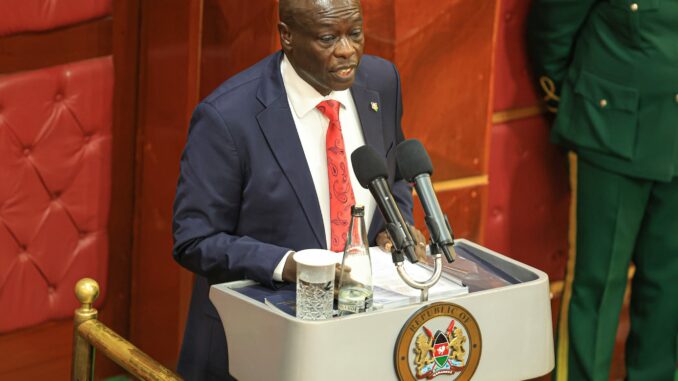
Kenya’s National Assembly has voted overwhelmingly to impeach Deputy President Rigathi Gachagua, accusing him of corruption and divisive politics.
The motion, passed with 281 MPs in favor, 44 against, and one abstention, marks the first time a Kenyan deputy president has faced impeachment. Gachagua, a wealthy businessman, denies all wrongdoing, describing the allegations as “outrageous” and “propaganda.”
The charges include accusations of acquiring properties through corrupt means and amassing unexplained wealth. The impeachment process follows a recent fallout between Gachagua and President William Ruto. Political tensions have been high since June when deadly protests erupted over tax hikes, exposing rifts in the government.
Security was heightened in Nairobi ahead of the vote, with roads to parliament blocked. The motion will now proceed to the Senate for a final decision on Gachagua’s removal from office. This political drama has overshadowed public concerns about the high cost of living. Gachagua, who appealed for forgiveness before the vote, has vowed to fight the charges, stating he has no intention of resigning.
The impeachment highlights the volatile nature of Kenyan politics and raises questions about the stability of the current administration. Gachagua’s position as a representative of the Kikuyu community, the country’s largest ethnic group, adds complexity to the political landscape.
The public consultation process showed a majority supporting his impeachment, reflecting the divided opinions on his leadership.
